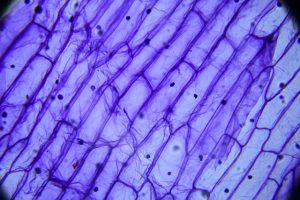Sober Pathways: A Guide to Recovery in Passaic County’s Sober Living Network
Passaic County, New Jersey, offers a comprehensive network of sober living homes that provide structured and supportive environments for those transitioning from substance use disorder treatment. These residences emphasize personal growth, accountability…….

Passaic County, New Jersey, offers a comprehensive network of sober living homes that provide structured and supportive environments for those transitioning from substance use disorder treatment. These residences emphasize personal growth, accountability, community engagement, and offer resources like mutual support groups, counseling services, and job assistance. The homes maintain strict guidelines, including drug testing and shared responsibilities, to uphold sobriety. They serve as a critical transitional phase in the recovery process, offering a substance-free living space that complements treatment and prepares individuals for full societal integration. These homes are vital for individuals in early recovery, offering a nurturing community, life skills development, and connections to local support systems, all of which contribute to sustained sobriety and overall well-being. The success stories from residents like John and Maria highlight the effectiveness of these homes in facilitating a path to recovery, rebuilding lives, and fostering community involvement.
In Passaic County, a network of Sober Living Homes offers a structured environment for individuals navigating recovery from substance use disorders. This article delves into the essence of these communities, which serve as critical stepping stones between treatment centers and independent living. We explore the criteria that define a quality sober living home within the region, the multifaceted benefits of transitional housing in fostering sustainable recovery, and the robust resources and support systems available to residents. Furthermore, we highlight how community engagement and purposeful activities enrich the lives of those on this journey. Through success stories, we witness the transformative impact these homes can have, illustrating the profound difference they make in rebuilding lives and promoting healthier futures for individuals and families alike.
- Understanding Sober Living Environments in Passaic County
- Criteria for Passaic County Sober Living Homes
- Benefits of Transitional Housing for Recovery
- Resources and Support Systems in Passaic County's Sober Living Communities
- Community Engagement and Activities for Residents
- Success Stories: Lives Changed by Passaic County Sober Living Homes
Understanding Sober Living Environments in Passaic County

Passaic County, situated in the state of New Jersey, offers a network of sober living environments that serve as transitional housing for individuals recovering from substance use disorders. These residences are designed to provide structured, supportive, and substance-free living conditions where residents can continue their journey towards long-term recovery. The environment within these homes is carefully crafted to foster personal growth, accountability, and community engagement. Residents often have access to a variety of resources, including mutual support groups like Alcoholics Anonymous or Narcotics Anonymous, professional counseling services, and employment assistance programs.
The sober living homes in Passaic County emphasize the importance of a supportive peer network, where residents can share experiences and encourage each other’s sobriety. These homes maintain a set of guidelines and expectations that all residents are expected to follow, which may include regular drug testing, chores, and active participation in group activities. The goal is to rehabilitate individuals into society by equipping them with the skills necessary for independent living while also reinforcing their commitment to maintaining a substance-free lifestyle. These environments play a crucial role in the recovery process, acting as a bridge between treatment programs and full integration into mainstream life.
Criteria for Passaic County Sober Living Homes

Passaic County sober living homes provide structured environments for individuals recovering from substance use disorders. These residences are designed to offer support and guidance as individuals transition from treatment programs to more independent living. To ensure a safe and conducive recovery environment, Passaic County has established criteria that all sober living homes must adhere to. These include a commitment to maintaining a drug- and alcohol-free household, regular random drug testing for residents, and a clear policy on the use of tobacco products, which are often prohibited within the premises.
Furthermore, sober living homes in Passaic County are expected to facilitate ongoing participation in recovery programs such as 12-step meetings or alternative therapeutic groups. They must provide a structured and supportive environment where residents can develop healthy routines, including scheduled chores, responsibilities, and curfews. The homes also offer educational assistance and employment guidance to help residents rebuild their lives. Additionally, these facilities prioritize the establishment of a community atmosphere where mutual support and respect are foundational principles. This ensures that each resident receives the necessary peer encouragement and accountability to maintain their sobriety.
Benefits of Transitional Housing for Recovery

Transitional housing, such as Sober Living Homes in Passaic County, serves as a critical stepping stone for individuals transitioning from structured treatment environments to independent living. These residences offer a supportive community where recovery is a collective focus. Residents benefit from structured routines that encourage accountability and responsibility while fostering personal growth. The homes provide a safe, drug-free environment that minimizes the risk of relapse and promotes healthy habits. Additionally, the communal aspect allows for peer support, shared experiences, and mutual encouragement, which are invaluable during early recovery. This environment also facilitates the development of life skills necessary for successful reintegration into society, such as budgeting, job searching, and maintaining personal relationships. The proximity to support networks, including 12-step meetings, healthcare providers, and sponsors, further enhances the likelihood of sustained sobriety. Through these benefits, transitional housing plays a pivotal role in the recovery journey by offering a secure space to heal, grow, and build a foundation for lasting change.
Resources and Support Systems in Passaic County's Sober Living Communities

In Passaiac County, sober living homes serve as foundational pillars for individuals transitioning from substance abuse treatment programs to independent living. These communities provide structured environments where residents can maintain their sobriety in a supportive atmosphere. The resources available within these homes are tailored to meet the diverse needs of recovering individuals, offering everything from peer support networks to access to counseling and therapy sessions. Many of these homes are affiliated with larger recovery networks, ensuring that residents have access to a wide range of mutual aid groups such as Alcoholics Anonymous or Narcotics Anonymous. These groups offer fellowship and shared experiences that can be instrumental in the recovery process. Furthermore, sober living communities often collaborate with local healthcare providers, which allows for the integration of professional treatment and support tailored to each resident’s unique journey toward long-term sobriety. The emphasis on a holistic approach, coupled with accountability measures and life skills training, helps residents build the foundation necessary for sustainable recovery and reintegration into society. These homes are not just about abstaining from substances; they are about fostering a new way of life that promotes health, wellness, and personal growth in a sober environment.
Community Engagement and Activities for Residents

Passaic County sober living homes play a pivotal role in facilitating community engagement and enriching activities that support the recovery journey of their residents. These homes often organize or participate in local events, fostering a sense of belonging and purpose within the community. Activities are tailored to encourage social interaction, physical well-being, and skill development, all of which are integral for long-term recovery. Residents may engage in volunteer opportunities, which not only give back to the community but also instill responsibility and a renewed sense of self-worth. Additionally, these homes often collaborate with local organizations to provide workshops or seminars on topics relevant to personal growth and maintaining sobriety. Through such active engagement, residents can gradually reintegrate into society, build meaningful relationships, and lead fulfilling lives post-rehabilitation. The focus is on creating a supportive network that uplifts individuals, while also contributing positively to the local community’s fabric.
Success Stories: Lives Changed by Passaic County Sober Living Homes

Passaic County sober living homes have been pivotal in transforming the lives of countless individuals on their journey to recovery from substance use disorders. These residences offer a structured environment where residents can reinforce the skills and strategies they learned during treatment, applying them in real-time as they navigate daily challenges. One striking success story is that of John, who after years of battling addiction, found a community of support at one of these homes. John’s journey was marked by relapses and setbacks until he entered a sober living home. There, he encountered peers facing similar struggles, and together, they held each other accountable, celebrated milestones, and encouraged ongoing recovery efforts. The supportive atmosphere, coupled with the home’s emphasis on personal responsibility and growth, enabled John to reclaim his life. He secured employment, repaired relationships strained by his addiction, and developed a network of lasting sobriety support. Similarly, Maria’s story illustrates the profound impact of these homes. Her battle with addiction had left her isolated and hopeless until she moved into a sober living home. The home provided her with a sense of purpose through its structured environment and therapeutic programs. With time, Maria not only regained her health but also pursued further education, becoming an advocate for others in recovery. These success stories are testament to the effectiveness of Passaic County sober living homes in fostering environments where individuals can thrive in sobriety, rebuild their lives, and contribute positively to their communities.
Passaic County’s sober living homes offer a structured environment that serves as a critical stepping stone for individuals in recovery. These residences adhere to stringent criteria that ensure residents receive the necessary support and resources to sustain their sobriety. The benefits of transitional housing are manifold, including fostering a sense of community, providing access to therapeutic resources, and encouraging engagement in local activities. The success stories emerging from these communities underscore the positive impact they have on lives, offering hope and inspiration for those on the same journey. As we reflect on the multifaceted role of sober living homes within Passaic County, it is clear that their significance extends beyond the individual, contributing to a healthier and more supportive community at large.









